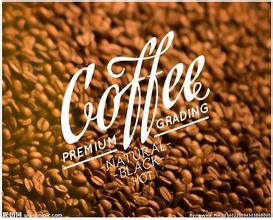From instant noodles to coffee brewing, the transformation of consumption concept has spawned new growth points in China
Shoppers in the world's second-largest economy are getting richer and sophisticated: instant coffee has given way to blended coffee, boutique beer has become increasingly popular, and the halo of mainstream beauty products has been replaced by more expensive products. At the same time, sales of instant noodles are declining.
Both Morgan Stanley (32.9,-0.03,-0.09%) and Mintel Group Ltd., a London-based market research firm, both report that China's discretionary spending is expected to grow.
This is an important change facing China's economy. At a time when traditional factors driving economic growth, such as heavy industry and exports, lose momentum, consumption is filling some gaps. China's gross domestic product (GDP) grew 6.7 per cent in the third quarter compared with the same period last year, with the service sector growing the fastest, reaching 7.6 per cent in the first three quarters. The total volume of retail sales of consumer goods increased by 10.7% in September compared with the same period last year. Citi estimates that consumption accounts for 71 per cent of GDP growth so far this year.
In this country where tea culture prevails, the market share of coffee shops is increasing. Part of the reason is status. In a small city, holding a white paper cup with a Starbucks (53.59, 0.44, 0.83%) icon is seen as a status symbol.
Beer enthusiasts are also looking for drinks of higher quality than mass-produced cheap ale: beer imports, which were close to zero a decade ago, rose to about 84 million litres in August.
China is likely to become the world's largest beauty market this year, with domestic consumers contributing 40 per cent to global growth in cosmetics and personal care products, according to Morgan Stanley. Consumers of beauty products in China are upgrading to high-end brands, and the market share of mainstream brands will continue to decline, losing brands that can bring new experiences through marketing and products to high-end products.
JD.com 's (26.65,0.35,1.33%) index shows that online shopping sales of cosmetics are growing rapidly.
Mintel estimates that even predictions of a devaluation of the renminbi will not stop the spending spree. The company said that urbanites in their 30s and 40s are the trend leaders of the future, and even in times of market turmoil, their consumption patterns "will not be greatly affected."

Important Notice :
前街咖啡 FrontStreet Coffee has moved to new addredd:
FrontStreet Coffee Address: 315,Donghua East Road,GuangZhou
Tel:020 38364473
- Prev

Why can coffee brands that convey negative energy every day still be loved by consumers?
Nowadays, many brand advertisements love to convey positive energy: families will be happy and their efforts will be rewarded. But for those office workers who are struggling on the edge of survival, this is clearly poisonous chicken soup. The reality is not so beautiful, not to mention the house price, a credit card bill can bring people back to their original form. A coffee brand saw the troubles of urbanites and simply called on netizens to be negative every day.
- Next

The New World of Coffee Market: there is a lot of money, few things and young people here?
With a lot of money, few things and young people, is there such a fengshui place to open a cafe? Campus. Students with more and more pocket money have good purchasing power; they are not too strict about the products of cafes and even the environment; and this group is the main consumers of coffee in the future. However, is this coffee business on campus easy to do? 1 campus coffee
Related
- Can I make coffee a second time in an Italian hand-brewed mocha pot? Why can't coffee be brewed several times like tea leaves?
- Hand-brewed coffee flows with a knife and a tornado. How to brew it? What is the proportion of grinding water and water temperature divided into?
- What is the difference between Indonesian Sumatra Mantinin coffee and gold Mantinin? How to distinguish between real and fake golden Mantelin coffee?
- What does bypass mean in coffee? Why can hand-brewed coffee and water make it better?
- Unexpected! Ruixing Telunsu lattes use a smoothie machine to foam milk?!
- % Arabia's first store in Henan opens into the village?! Netizen: Thought it was P's
- Does an authentic standard mocha coffee recipe use chocolate sauce or powder? Mocha Latte/Dirty Coffee/Salty Mocha Coffee Recipe Share!
- What is the difference between Vietnam egg coffee and Norway egg coffee? Hand-brewed single product coffee filter paper filter cloth filter flat solution!
- What is the difference between sun-cured and honey-treated coffee? What are the differences in the flavor characteristics of sun-honey coffee?
- How to make Italian latte! How much milk does a standard latte use/what should the ratio of coffee to milk be?

